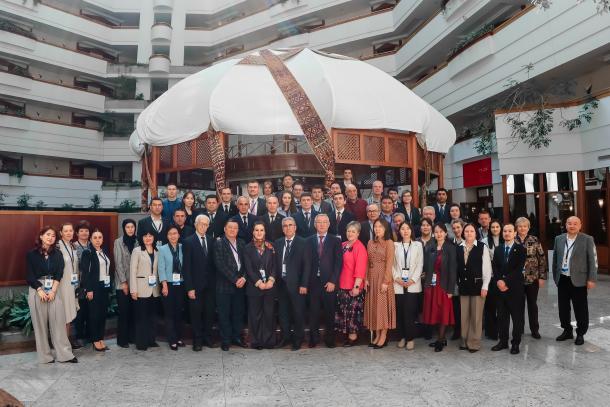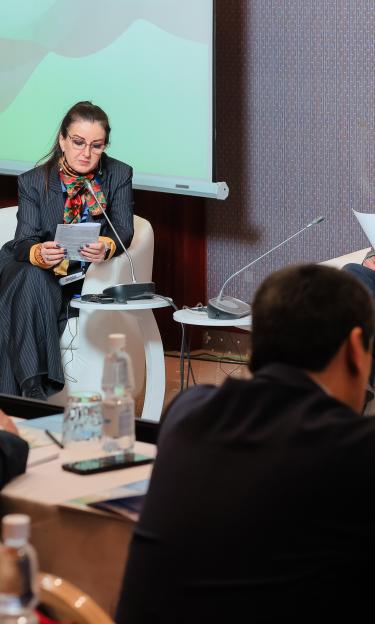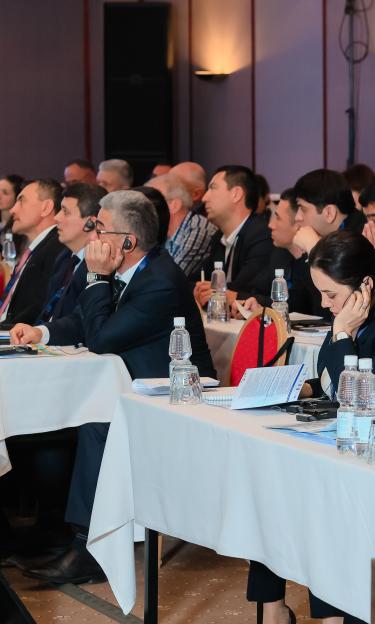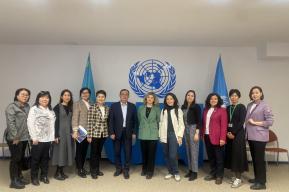Article
Workshop on Strengthening Resilience of Central Asian Countries through Cryosphere Data and Action Plans was Held in Almaty

Glaciers are the most important long-term freshwater reservoirs in Central Asia. Glaciers are also a critical source of water supply during dry years. The major river systems of Central Asia and the river flow of the Aral Sea basin are largely dependent on the melting of snow and ice in the upper reaches of the rivers.
Central Asia faces an undeniable call to action. This region is exceptionally susceptible to the devastating effects of climate change. Over the past five decades, the volume of glaciers in Central Asia has decreased significantly, by an estimated 20–30 percent, all due to climate change, which has a significant impact on changes in river flows.
Background of the project
The project addresses a critical environmental issue in Central Asia and highlights the importance of snow, glacial and permafrost systems (glacio-nival systems) in maintaining regional water supplies and sustainability. Central Asia's reliance on these systems for water, agriculture, and energy makes understanding and preserving them vital. The project aims to enhance regional cooperation among Central Asian countries, recognizing that climate change and its effects on water resources are transboundary issues requiring collaborative efforts on Strengthening Resilience of Central Asian Countries through Cryosphere Data and Action Plans.
Key objectives
Key objectives of the project include assessing and monitoring the health of the cryosphere, developing integrated methods for sustainable water resources management, and formulating adaptive strategies to cope with the changing climate. This involves using scientific research, technological advancements and traditional knowledge to create resilient practices. By fostering regional collaboration, the initiative seeks to build a comprehensive understanding of the challenges posed by climate change and develop effective, sustainable responses.
The workshop brought together key project stakeholders, including national representatives from Kazakhstan, Kyrgyz Republic, Tajikistan, Turkmenistan and Uzbekistan, international experts in cryosphere research, data management specialists, and policy makers.
The project “Strengthening the Resilience of Central Asian Countries by Enabling Regional Cooperation to Assess High Altitude Glacio-nival Systems to Develop Integrated Methods for Sustainable Development and Adaptation to Climate Change” aimed to lay a foundational framework for effective regional cooperation in cryosphere monitoring and data management, paving the way for robust National Action Plans and informed scenario development for future cryosphere changes.
Main results and achievements of the workshop:
- Network creation: participants from all Central Asian countries were able to introduce themselves to each other and build strong relationships with main partners which helped to create a network of cryosphere experts.
- Open discussion “Science – Policy Dialogue on Changing Cryosphere in Central Asia” helped to understand the reasons for the gap between scientific research and decision-making.
- The first step in the preparation of the National Adaptation Plans and Strategic Action Program was made. Participants identified the regional priorities related to the cryosphere that will help to focus on the development of the adaptation measures on future workshops.
This project will help the region assess the contribution of glaciers, snow cover and other components to river flow. Unified monitoring of the glaciers in all countries of Central Asia will improve forecasts and make national and regional plans for adaptation to climate change.








